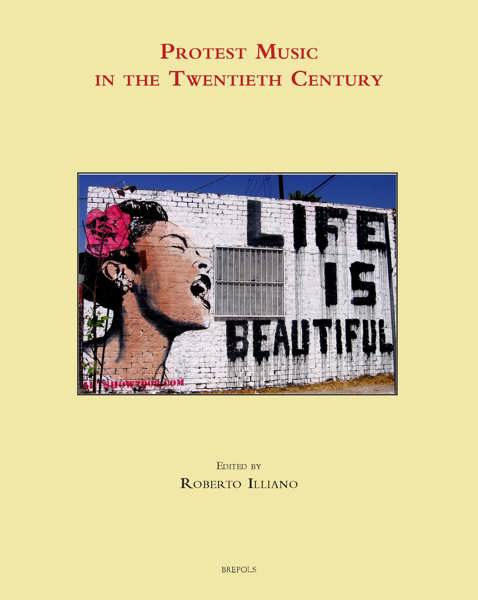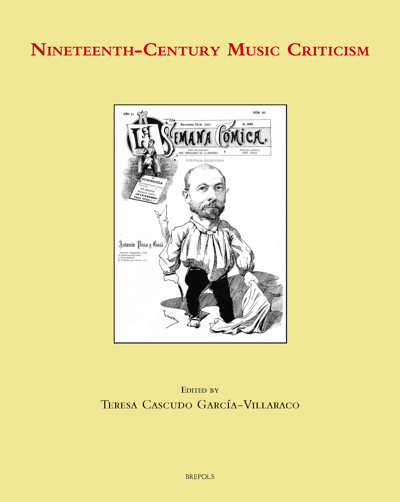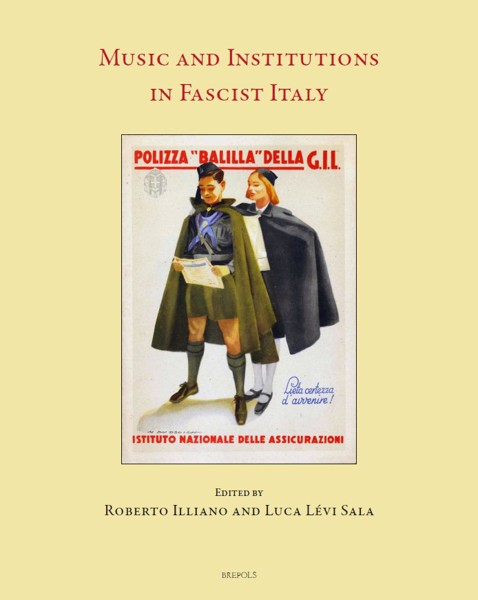
- Pages: xvi + 464 p.
- Size:210 x 270 mm
- Illustrations:15 b/w, 1 tables b/w.
- Language(s):English
- Publication Year:2025
- € 140,00 EXCL. VAT RETAIL PRICE
- ISBN: 978-2-503-61846-3
- Hardback
- Available
This book aims to enhance our understanding of censorship practices.
James Garratt is Professor of Music History and Aesthetics at the University of Manchester. His research centres on German music, thought and culture in the long nineteenth century; aesthetic theory and music aesthetics in modernity; and music, politics and political theory. His publications include four monographs: Music, Aesthetics and Value (Cambridge University Press, forthcoming); Music and Politics: A Critical Introduction (Cambridge, 2018); Music, Culture and Social Reform in the Age of Wagner (Cambridge, 2010); and Palestrina and the German Romantic Imagination (Cambridge, 2002).
In relation to music, the word censorship immediately calls to mind the totalitarian regimes of the twentieth century, in particular those of Nazi Germany and the USSR. But music censorship is arguably even more prominent and pervasive in our own age, not only in authoritarian states but also in Western liberal democracies. This book aims to enhance our understanding of censorship practices, the social and political values they serve, and the governmental and legal frameworks that have enabled them to flourish. Its twenty chapters – written by a team of international scholars – explore both historical case studies and the new forms of censorship that have emerged in the digital age. It evaluates different theories and models for understanding censorship, applying the concept not only to top-down government controls but also to the measures that cultural institutions, the media, and global corporations have put in place to police music and musicians. Crucial too is the exploration of how music censorship relates to other forms of political action, including cancelling, critique, and performative activism. The book also reveals the diverse strategies that musicians and listeners have employed to circumvent censorial control and to march to a different beat.
James Garratt, Music and the Politics of Censorship: An Introduction
Theories and Models
Beate Kutschke, Five Strictures on Music Censorship
James Garratt, Rethinking Music Censorship under Neoliberalism
Naomi Waltham-Smith, Silenced Music, Civil Liberties, and Human Rights Law
Classical Music under Censorship in the Fascist Era and Cold War
Alison Minkus, Censorship at the New York Philharmonic during World War Two
Thomas Radecke, Subversive Institutional Censorship: The Reluctant Dispersal of the Allgemeine Deutsche Musikverein by the National Socialist Regime, 1933-1937
Isabella Abbonizio, Theatre Censorship in Italo-Turkish Diplomatic Relations: Lodovico Rocca’s Monte Ivnòr (1938-1939)
Rūta Stanevičiūtė, (Self-)Censorship in Soviet Lithuanian Music during the Stalinist Period
Michal Ščepán, Censorship Practices in Music during the Totalitarian Regime in Slovakia
Belén Pérez Castillo, The Said and the Unsaid: Luis de Pablo, Xenakis, and Hispanic-French Relations Arising from Two Uncomfortable Concerts at the Beginning of the 1970s
Policing Subversive and Transgressive Music and Musicians
Iván Iglesias, Rethinking Popular Music Censorship: Jazz in European Dictatorships (1925-1948)
Robert Gyorgyi, Whose Cziffra? Cultural Diplomacy in the Cold War and the Political Value of a Dissident Artist
Marie Josephine Bennett, «Frankly, the Hypocrisy over the Censorship of This Single Horrifies Me»: Scott Walker’s ‘Jackie’ (1967)
Mara Favoretto, Censorship in Rock Music in Argentina, 1976–1983: The Case of Luis Alberto Spinetta
Raffaella Bianchi, Is Morality the New Nationalism? Shifting Paradigms for Music Censorship in Türkiye
Music Censorship in Contemporary Neoliberal and Authoritarian Regimes
Andrew Holden, Censorship of Opera in the Twenty-First Century: The Discontents of a Transnational Art Form
Edwin K. C. Li, Hermeneutic Mischief and the Affect of Sonic Remainders
Thiago Cazarim, Brazilian Rap Music, Censorship, and the Economy of Performativity: The Fiction/Reality Relation on Trial
Audrey Amsellem, Listening as Silencing: Sonic Data, Extraction, and Surveillance
Rachel Griffin, The Politics of Algorithmic Censorship: Automated Moderation and its Regulation
Abstracts and Biographies
Index of Names




